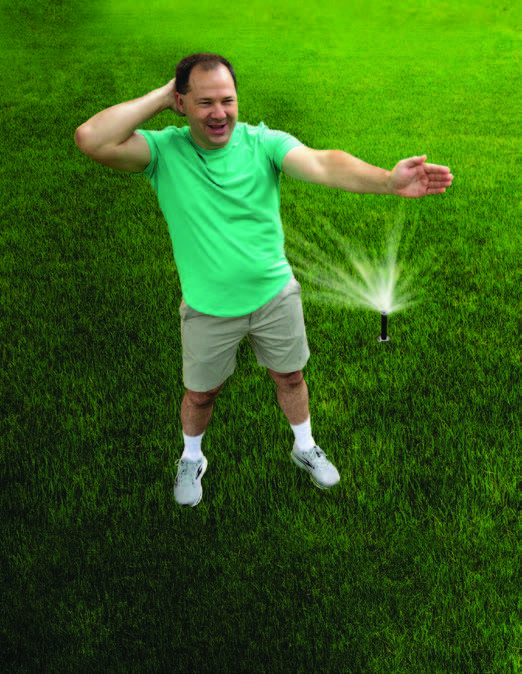
Citizens Energy Group is encouraging customers to reduce lawn irrigation and conserve water during this summer of hot, dry weather in Central Indiana.
During these weather events, approximately 50-70% of all drinking water produced in Central Indiana is used for watering lawns, with automated irrigation systems often pulling the largest volume. Overusing lawn irrigation systems negatively impacts both the water distribution system and the very lawns they're watering.
“Many people do not realize that most Central Indiana lawns only need watering one to two times per week. Excessive watering of lawns and other plants can result in shallow roots, weed growth, fungus, and unhealthy runoff that can impact local streams,” said Jeff Willman, Vice President, Water Operations at Citizens. "Lowering peak demand for water also will reduce stress on the water distribution system, thus minimizing costly and wasteful water main breaks. Water conservation is not only the right thing to do; it also increases system efficiency and lowers customers' monthly bills."
Citizens Energy Group suggests the following ways to conserve water:
- Limit lawn watering to one or two times per week. Stagger the timing of water use from neighboring irrigation systems using the following method: Properties with a street address ending in an odd number (1, 3, 5, 7, or 9) can water on Monday and/or Thursday. Properties with a street address ending in an even number (0, 2, 4, 6, or 8) can water on Tuesday and/or Friday.
- Turn off your automatic irrigation system if it has recently rained or is currently raining.
- For those living in apartment complexes, neighborhoods with a homeowners association, or other communities that maintain lawns on common property, encourage management to limit unnecessary lawn irrigation.
- Use your garden hose properly: Sweep driveways, sidewalks, and steps rather than hosing them off. Regularly check the garden hose for leaks and replace or tighten any broken or loose connections.
- Only run your dishwasher and washing machine when they are full and use a water-saving wash cycle if available. Take shorter showers and reduce water use in the bathroom and kitchen by turning off water while brushing teeth, shaving, and washing dishes.
In addition, consider reducing your grass footprint by planting native plants. Native plants are adapted to the local climate and soil conditions where they naturally occur and have several advantages. Among them: requiring less water than lawns and preventing erosion; significantly reducing water runoff and flooding; and reducing air pollution, providing shelter and food for wildlife, and promoting biodiversity.


